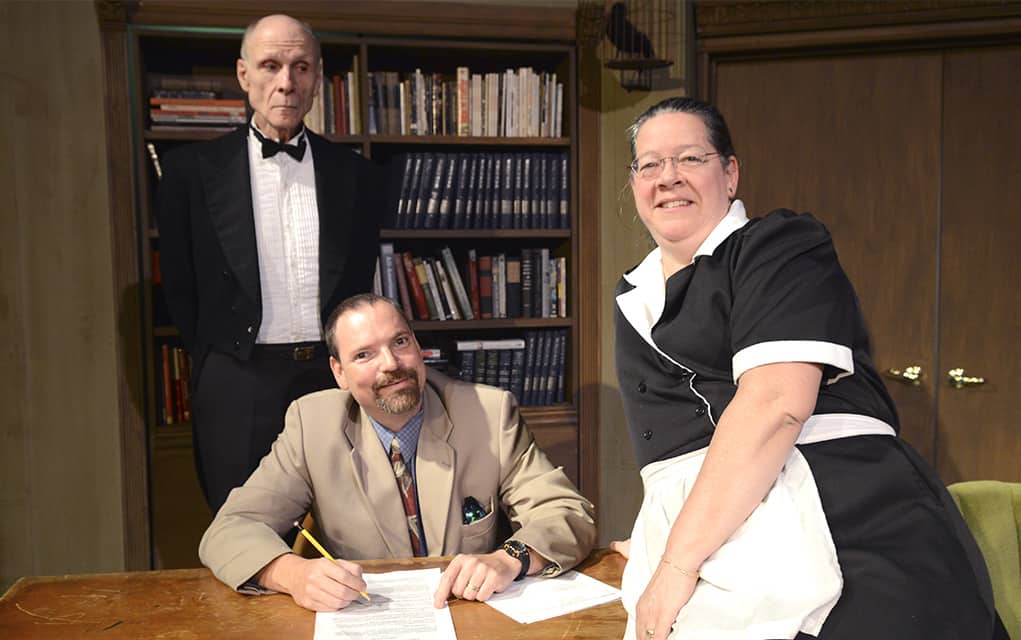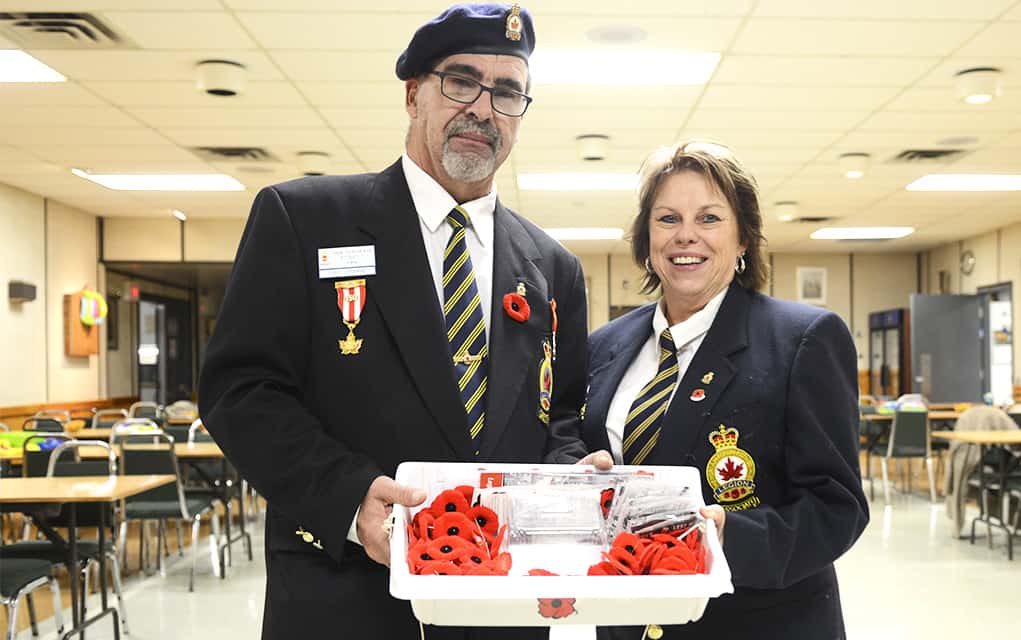They say that money corrupts – but they also say blood is thicker than water. And when the lavishly wealthy Edwin Randolph passes away to leave the Rudolph family inheritance up for grabs, the familiar wisdom gets put to the test in this Elmira Theatre Company production of Nikki Harmon’s Murder Most Fouled-Up.
One part farce, one part murder mystery, and with a dash of the supernatural and the mundane, Murder Most Fouled-Up sees the eclectic Rudolph family, accompanied by the family lawyer and executor of the late-Rudolph’s estate, Seymour Mead, trying to get their hands on the mysterious $20-million inheritance hidden somewhere in the family mansion.
Along for the ride, and lending a supernatural if questionably helpful hand, are the deceased members of the Randolph clan, who despite being dead seem not at all perturbed at being murdered by one another for the elusive family inheritance. (“All I did, dear, was murder you for the inheritance. It was nothing personal,” quips one impatient ghost to another.)
It’s a story with a lot of moving parts, says veteran ETC director Rita Huschka, including a revolving cast of quirky characters and family drama. But at its heart, it’s a simple and relatable story about familial relationships.
“The story is not that complicated,” notes Huschka, who returns to the director’s chair after previous ETC outings like the Norm Foster caper On a First Name Business, produced earlier this year. “The story is more about a family that kills each other off for the inheritance every 20 years when someone dies. I don’t know why, but they all tend to want to kill each other off because they all want money. And it’s a lot of money.”
Murder has practically become a tradition for the Rudolphs, as each generation is tempted by the extraordinary wealth of family estate. But will the cycle of murder and mayhem repeat itself again? Or will their better senses prevail?
“The heirs kill each other hoping to get more of the money. And then they all end up dead and nobody gets anything and it all starts all over again when the next one dies,” she says. “It’s about murder and mayhem, and how murder doesn’t pay.”
The story opens shortly after the death of the family patriarch, Edwin Rudolph, when the surviving members descend on the family homestead for the reading of the will.
Chief among Edwin’s inheritors are his niece and nephew, siblings Kya and Jason Rudolph, played by Selina Russell and Robb Judd, respectively.
Being dead is no excuse not to be funny in this production, however, or at least be present on stage – the cast is joined by several members of the deceased Randolph family. Doug McDonald takes on the role of the senior Ridgely Randolph, Kya and Jason’s great-great-grandfather, while Chris Grose plays the spirit of their great-great late aunt.
Rounding out the cast of the living are Kathy Fahey as the family’s long-suffering housekeeper, Tom Bolton as the stiff-upper-lipped butler, and 1 as the Rudolph’s straight-laced lawyer Seymore Mead.
“My role is to get the will read and that process finished in an appropriate amount of time, which I come to realize is not the case,” explains MacKay of his character. It’s a simple enough job, but Mead quickly finds himself drawn into the family drama unfolding around him.
“Throughout the play, I stay firm on morals and legalities. That’s just who I am. That’s my nature as Seymore Mead,” he says. “And then I’m intrigued with how crazy things have gotten in the past and almost want to be involved this time,” he says. “So I step in unofficially as an executor should not and offer my assistance. Just to see how affluent people like myself can get to a point where they want to kill each other.”
Ultimately, Mead finds himself navigating a lot of family dysfunction, disembodied ghosts, and, yes, some potential murder, as he tries to sort out the family’s affairs.
“I think you could find a moral in the story. I think it’s very easy to find a moral in the story,” he says. “But I think it’s more of having fun, watching a family fall apart all about money, and greed, getting in the way.”
It’s quite a relatable story, both MacKay and Huschka note, in a farcical sort of way. Most people don’t have relatives out to get them, or vast sums of money to fight over, or ghosts, for that matter. But many will relate to the oft-dysfunctional family dynamic on display, and the messy relationships they tend to bring about.
“I think there’s a lot of good touches between Jason and Kya,” says MacKay, of the siblings seeking the inheritance.” And they even touch-base in the words that they say, and in the actions that they do with each other, that a lot of families will relate to. Younger siblings and older siblings. And how they react towards each other.”
“It’s fun,” adds Huschka succinctly. “It is a fun night. It’s quick moving, it’s a fast-paced play.”









